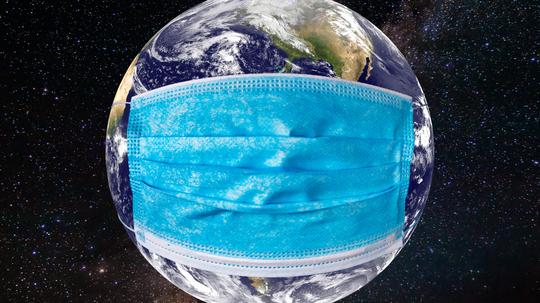
When Reginald Swift tested the swab samples he received from Asia, he saw a "very rapidly" mutating virus. Not a pandemic.
But his experience studying infectious diseases in West Africa and India told him he was looking at something significantly virulent.
Swift is the founder and CEO of Rubix Life Sciences, a Lawrence-based startup that builds predictive models to combat infectious and rare diseases. The four-year-old company's research helps ensure diversity in patients who sign up for clinical trials for drugs targeting infectious and rare diseases.
In December 2019, when a contract research organization Rubix partners with reached out with animal test swabs, they wanted to know two things: 1: What was making livestock including cows, chickens and turkeys sick and, 2: If it was indeed a pathogen, could it jump to humans.
"One of our partners, a municipal hospital in the Hong Kong area reached out in December as they didn't have the resources to understand what the new strain was and they handed it over to us," Swift said. "The virus was evolving as we were understanding the animal model and we saw the mutation actually happening before we could even characterize that specific strain of coronavirus."
From that point on, it's been a round-the-clock sprint against the virus.
"The virus was mutating faster than we thought it was. The first thing we did was to reach out to the CDC," Swift said. "We reached out to them and said we are seeing something that we need to work with you on right now. Nobody took us seriously."
The CDC did not respond to a media request for comment as of press time.
While the Rubix Life Sciences team did not predict the COVID-19 outbreak would become a pandemic, its predictive models indicated that it would affect human biological systems very differently and very rapidly. Since then, Swift has had a single mission — to beat the virus, and if he cannot do that, help those who can make the right decisions.
Founded in 2016, the startup also does consulting for government agencies to prepare countermeasure plans should in the event of chemical, biological or environmental disasters.
"Our target was to inform authorities so we can get ahead with a vaccine program to counteract the spread," Swift said.
"The VIRUS WAS MUTATING FASTER THAN WE THOUGHT IT WAS. The first thing we did was to reach out to the CDC,” SWIFT SAID. “WE REACHED OUT TO THEM AND SAID WE ARE SEEING SOMETHING THAT WE NEED TO WORK WITH YOU ON RIGHT NOW. NOBODY TOOK US SERIOUSLY."
In order to be proactive and get the attention of authorities, Swift and his team applied for an innovation award grant instituted by the National Institute of Allergies and Infectious diseases in early January. The startup's idea was to retrofit one of its pilot products — a real-time detection mask, built with an AI transceiver that can aggregate particle protein in an open air setting. A real-time detection mask that was developed to detect infectious disease outbreaks like Leishmaniasis, Lassa, West Nile, Zika. It was programmed to detect COVID-19.
The company completed the initial prototype of autonomous detection mask for "bronchoalveolar fluid nCoV-2019 isolation" on January 4. The first confirmed case of the novel coronavirus in the U.S. was on January 20.
Swift realized soon that time was a depleting resource. While he waited for a response from NIAID, he shipped the masks to his partner organizations in Philippines and Taiwan to start gathering data, which he would later take to the CDC.
"We went into the field when we realized all we need is data right now," Swift said, "We run the pilot on confirmed as well as unconfirmed cases. While this was ongoing, we were relaying this data to the CDC said 'this is it.'"
Even with his specialized knowledge in the area, Swift did not expect the outbreak to reach such unprecedented levels. And eventually, when the outbreak spread to the U.S., the only response was to react.
But the company wasn't going to stop at an interrupted attempt. In mid-February, after assessing the rapidly-changing situation, Swift and his team started working on a global symptom monitoring tool run in conjunction with hospitals. Deployed in hospitals in the U.S., Canada and China, the tool helps hospitals see the real-time spread of the virus so they could plan mitigation strategies and supplies needed to boost testing.
"We are trying to run as fast as we can. The next few months are going to be a sprint to ensure hospitals and clinics have the resources they need for counteractive measures," said Swift.
Additionally, Rubix Life Sciences is also part of the White House task force to develop responses to the pandemic. And the startup's contribution? Developing an inhalation vaccine to fight COVID-19.
"It is a 24 by 7 operation," Swift said. "I've never worked so hard since I started the company."








